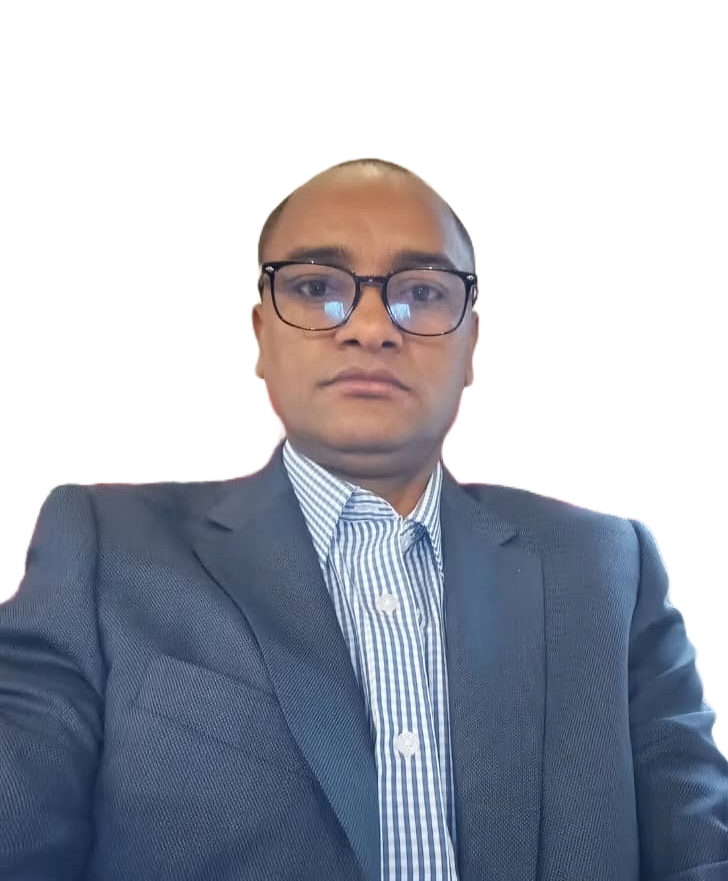Published: 04/17/2024
Dr. Berhe will be at Stanford April 23-27 for a mixed methods research training and hopes to connect with colleagues in global health research, pharmacology, and noncommunicable diseases.

Dr. Derbew Fikadu Berhe, a clinical and public health researcher at the University of Global Health Equity (UGHE) in Rwanda, has a favorite quote that guides his research: “No story about us without us.”
As a postdoctoral research fellow at the Center for Equity in Global Surgery, he is the lead postdoc for the Rwanda portion of an innovative, four-country Equi-injury research project that aims to improve equitable quality injury care for patients in low- and middle-income countries through stakeholder engagement and generating evidence for policy input. The project is funded by the UK’s National Institute for Health and Care Research.
“Too often in research, we grab a question without engaging the community and understanding their priority needs,” he said. “As a result, our findings may not have any impact at all on the community we studied. With this study, we are breaking that tradition by engaging different stakeholders, including community members. We’re getting them involved by bringing them together for workshops, and discussing with them their key priority needs and their perceived barriers and facilitators for engagement for policy input.”
With this study, we are breaking that tradition by engaging different stakeholders, including community members. We’re getting them involved by bringing them together for workshops, and discussing with them their key priority needs and their perceived barriers and facilitators for engagement for policy input.
dr. Derbew Fikadu Berhe, PHD
He’ll be at Stanford between April 23-27 to attend a mixed-methods research design workshop hosted by Stanford Surgery’s Policy Improvement Research & Education (S-SPIRE) Center. Dr. Berhe says the workshop will provide critical insights and skills in mixed-methods research design and analysis to help advance his work on the mixed-methods Equi-injury research project.
Dr. Berhe is being hosted by Stanford Surgery’s Global Engagement Office, who for the second year is funding a scholar from the University of Global Health Equity (UGHE) to attend the workshop. Since its inception in 2015, as a Partners In Health initiative, UGHE has partnered closely with the Stanford Center for Innovation in Global Health, Stanford Surgery, and others to expand healthcare capacity on the African continent and foster global health equity.
“This workshop is a perfect and timely fit for my project’s data analysis needs as we are entering the data analysis phase of our project,” Dr. Berhe said. He added that the project uses a “parallel convergent mixed method design” approach where qualitative and quantitative data will be collected, analyzed, and interpreted in a concurrent manner.
He also hopes to meet and deepen connections with Stanford global health practitioners during his time at Stanford. He’s particularly interested in connecting with researchers conducting international collaboration projects, focusing specifically on partnerships between countries in the Global South as well as the Global Southwest. This includes collaborations in terms of quality of care, access to care, and local capacity building.
“I look forward to connecting with Stanford Surgery’s Global Engagement office to explore potential cross-country collaboration on equitable healthcare delivery in LMICs — mainly in the areas of injury and NCDs,” he said.
Additionally, with his combined expertise in pharmacology, pharmacy practice, clinical and public health research, Dr. Berhe is interested in improving clinical service through research. His focuses include quality use of medication and understanding how different populations respond to treatments. He hopes to connect with Stanford’s Department of Molecular Pharmacology to explore collaborations and input on his research.
Dr. Berhe is also interested in capacity-building in Africa around non-communicable diseases such as hypertension, diabetes, oncology, and the impact of antimicrobial resistance on non-communicable diseases care.
“People often assume that these are diseases of the rich, but they are not,” he said. “We are seeing the prevalence increasing in Africa. Considering Africa’s rich genetic diversity, I want to collaborate with other researchers to understand the prevalence of these diseases across the continent, and how might diagnosis and treatment differ contextually.”
Dr. Berhe is also a UGHE faculty member in the Department of Pharmacolgy, Biomedical Science Division. He is open to any potential collaborations within his area of interest and expertise. Anyone in the Stanford community interested in connecting with Dr. Berhe during his visit can connect with him over email at dfikadu@ughe.org, on LinkedIn, or via Twitter:@derbew_fikadu.